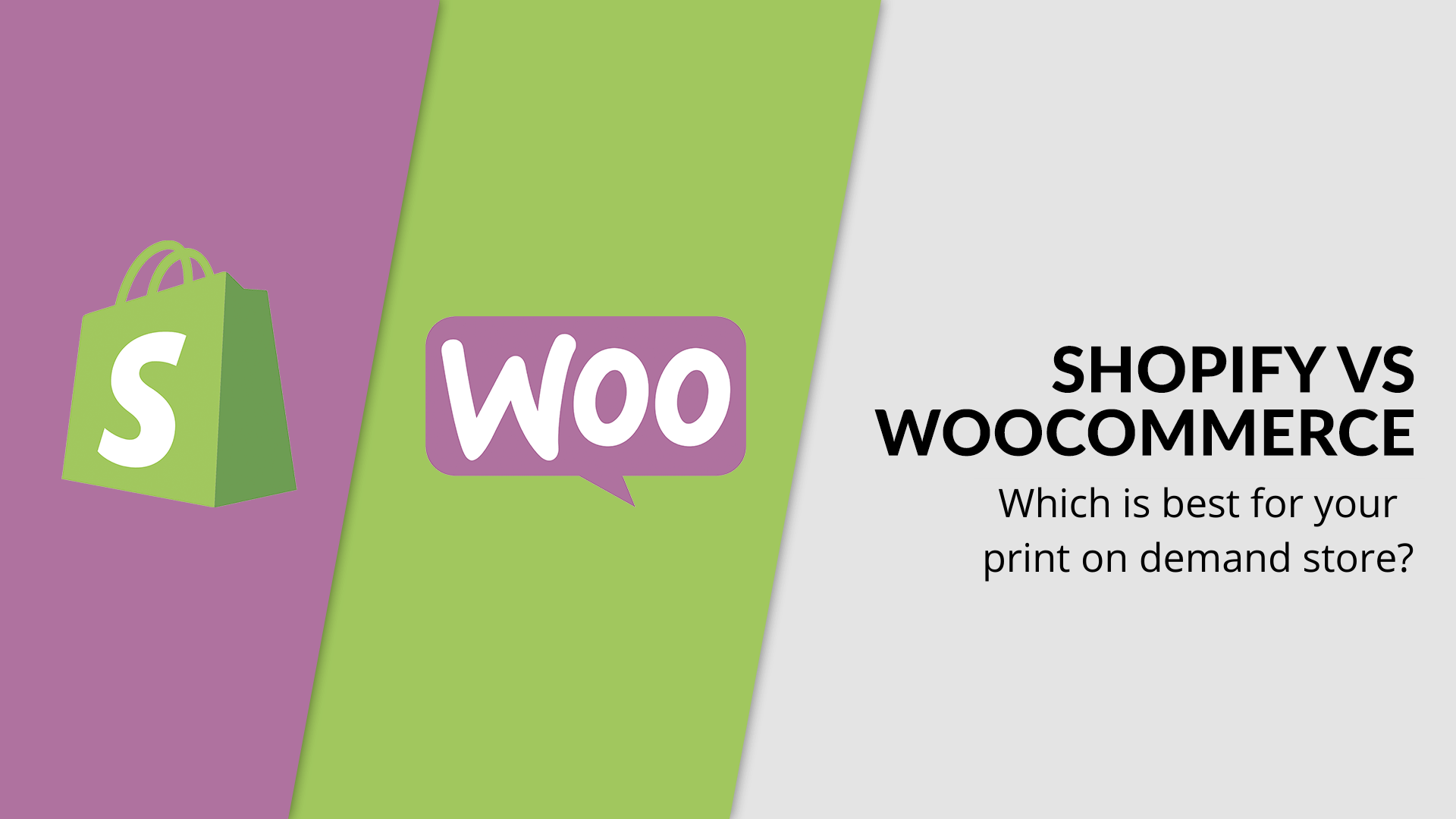This is the question many businesses (especially start-ups) ask themselves, and in this post, I deal with it in depth. Read on for a thorough examination of both platforms and their key features. And that's why you can choose one of them when creating an e-commerce site. By the end of this article, you should have a better idea of which platform will meet your business needs.

Let’s start with a quick overview of both platforms.
What is Shopify?
It is a web application specifically designed to allow merchants to create and launch their online stores. It offers various templates that can be customized to meet the branding requirements of individual industries and allow it to sell goods both physically and digitally. One of the main ideas behind Shopify is that users can create a store without any technical or design skills - without resorting to coding.
However, Shopify also allows you to edit your website's HTML and CSS, meaning those who have coding skills will be able to customize their store more extensively.
Because Shopify is a 'host' solution, everything runs on Shopify's servers. So, you don't have to worry about buying web hosting or installing software; The idea that you need to move and run your store is pretty cool, ‘out of the box (that is to say, you can customize the Shopify store to meet your more bespoke requirements by adding apps - that is Then more)
Shopify is a software that is a service tool - this means you don't own the software but pay a monthly fee to use it. Being a web application, it works in the cloud - so you can manage your store from anywhere as long as you have a web browser and internet access.
What is WooCommerce?
WooCommerce is a customized open-source platform, built on WordPress. For hosted WooCommerce print on demand, you pay a monthly fee, and you get a variety of features that enable you to create and maintain a website.
However, it is one of the 'solutions' compared to Shopify, as users need to use third-party tools like Equid, WooCommerce (or Shopify!) To add e-commerce features.
 View Website
View Website
 View Website
View Website
 View Website
View Website
Self-hosted WooCommerce
Self-hosted WooCommerce is software that you download from WooCommerce.org and then install on your web server. It is open-source, which means that the code behind it is freely available and easily accessible.
In practice, this means that sites made from WooCommerce can be customized in the ninth degree - this is a very flexible tool, right in the website developer's hands to meet the requirements or can be customized by installing the appropriate plugins. Almost any web design project.
Selection of WooCommerce themes. The main advantage of using the platform is that there are thousands of different templates available for it.
You can install print on demand WooCommerce on your server for free, but there are hosting costs, domain registration fees, and potential plugin/development costs to consider. We will discuss its depth in depth later in this post.
This Shopify vs WooCommerce comparison will focus on the self-hosted version of WooCommerce - the idea is whether readers will be compared to an 'all-in-one hosting solution (Shopify) with open-source resource platforms. From Configuration (WooCommerce)
What kind of users are Shopify and WooCommerce?
It is fair to say that Shopify's primary audience consists of users who lack two things:
- Web development skills
- Budget to hire someone to build your store.
These users often turn to Shopify because the platform allows you to create a store online without coding and because it does not require a significant upfront investment to use. WooCommerce dropshipping by contrast for a large group of users: • Web design novice • Users with web development skills • Users with a budget to hire a developer.
Like Shopify, WooCommerce is perfect for users who are relatively new to web design and not particularly tech-savvy - creating and maintaining a WooCommerce site without the need for any coding skills is undoubtedly possible, especially if you're happy to use it. '. The interface of visual editors for WooCommerce like Divine. Users who don't want to get too close to any HTML or CSS can avoid doing so with WooCommerce.
But I argue that in most cases, before the website is published, more configuration of WooCommerce is required - and depending on what you want to do, setting up a WooCommerce site is comparable to using Shopify, which may include a stator learning curve.
Other audiences that cater to WooCommerce have a lot of web development experience: using WooCommerce to create the site they need will be good. And the third audience is the big-budget users - this cash could be used to hire a WooCommerce development team to create a truly 'bespoke' website running on super-fast servers.
The word 'bespoke' is essential here. It shows a significant difference between WooCommerce and Shopify - although it is possible to improve Shopify in many ways (apart from coding or application), what you can do has other limitations. What, and you always have to host your site on Shopify's servers.
How many people use WooCommerce and Shopify?
When choosing a website building solution, it is essential to know how many people use it to build their site or online store.
This is because, generally speaking, if a particular platform has a large user base, you will see that there are many more support options, resources and apps/plugins available for it online. It will disappear and take your website with you! The latter issue is significant for users who are considering using a fully hosted solution like Shopify - such companies may face financial difficulties and may result in closed product lines.
A massive user base reduces its risk.
The good news is that both WooCommerce and Shopify enjoy great popularity and have large users. According to Shopify, depending on who you believe on the Internet, 75-90 million self-hosted WooCommerce sites exist and platform power of more than 1,000,000 stores.
Given these numbers, WooCommerce is technically safe in the long run, but Shopify is one of the most popular products of its kind and is likely to go away soon. This means you can count on creating a presence online presence for your business using Shopify or WooCommerce.

Comments (0)